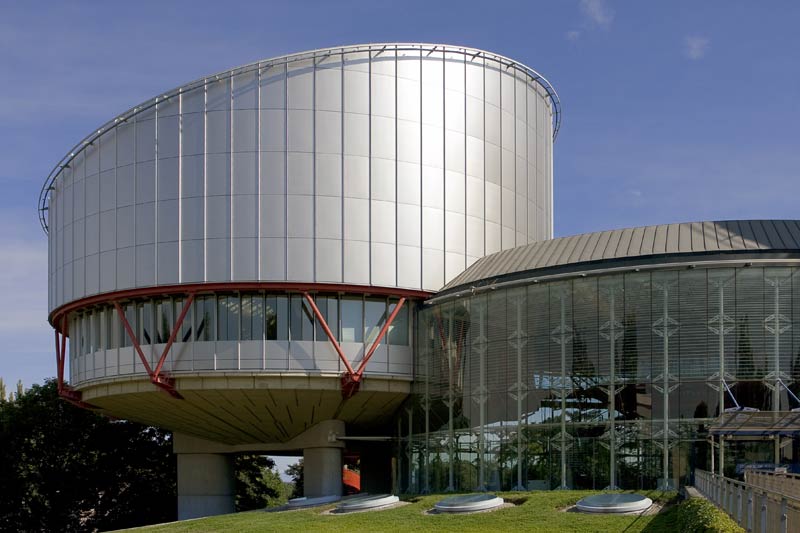I clearly remember the days following the Revolution of 1989 in Romania. Whoever you met would speak about freedom: “Now we can say what we think out loud. We no longer have to whisper. We are free!”
In post-December Romania, the phrase “freedom of expression” stood in direct opposition to the censorship of the communist system, which had stifled millions of people for decades. But it did not take long for abuses to appear in the name of free speech. Too much? Too little? How far does freedom of expression extend, and when does it become abuse?
The Transylvanian rabbi and historian Mosche Carmilly-Weinberger[1] once wrote: “A man’s voice is his personal possession, it is as much part of him as his five senses, and no power on earth has the right to limit or silence it. The individual has the exclusive right to use it and to let it be heard as his own will dictates. This right was bestowed on every human being at the time the world was created.”[2]
Freedom of expression in the Romanian constitution
The Romanian Constitution guarantees freedom of expression in Article 30: “(1) Freedom of expression of thoughts, opinions, or beliefs, and freedom of any creation, by words, in writing, in pictures, by sounds, or other means of communication in public are inviolable. (2) Any censorship shall be prohibited.”
According to Article 10, paragraph 1 of the European Convention on Human Rights, drafted by the Council of Europe and in force since 1953, “Everyone has the right to freedom of expression. This right shall include freedom to hold opinions and to receive and impart information and ideas without interference by public authority and regardless of frontiers.”
Thus, freedom of expression holds a special place in any democratic state governed by the rule of law. To ensure its effective protection, the state is obliged not only to refrain from restricting this right but also to safeguard the free flow of information.
Your freedom ends where the freedom of others begins
While the first paragraph of Article 10[3] guarantees the right to free expression, the second paragraph draws attention to the potential for abuse—and sets limits accordingly. “The exercise of these freedoms, since it carries with it duties and responsibilities, may be subject to such formalities, conditions, restrictions or penalties as are prescribed by law and are necessary in a democratic society, in the interests of national security, territorial integrity or public safety, for the prevention of disorder or crime, for the protection of health or morals, for the protection of the reputation or rights of others, for preventing the disclosure of information received in confidence, or for maintaining the authority and impartiality of the judiciary.”
The Romanian Constitution also stipulates that “Freedom of expression shall not be prejudicial to the dignity, honor, and privacy of person, and the right to one’s own image.”[4] In support of this principle, the European Court of Human Rights prohibits the abuse of rights under Article 17: “Nothing in this Convention may be interpreted as implying for any State, group or person any right to engage in any activity or perform any act aimed at the destruction of any of the rights and freedoms set forth herein or at their limitation to a greater extent than is provided for in the Convention.”
Types of speech protected under freedom of expression
The scope of this freedom has gradually expanded and today covers every type of speech, regardless of its nature—political, journalistic, literary, commercial, or otherwise—and regardless of the medium through which it is expressed.[5]
One widely publicised case in which the European Court of Human Rights found a violation of freedom of expression was Wille v. Liechtenstein. Herbert Wille, President of the Administrative Court of Liechtenstein, gave a lecture at a research institute in which he argued that the Constitutional Court had the authority to decide in cases of disagreement between the prince (the government) and parliament. The prince, who served as head of state, later informed Wille in a letter that his stance amounted to a refusal to respect the constitution. As a result, the prince stated that once Wille’s term expired, he would never again appoint him to public office, even if parliament proposed him. Indeed, after parliament later nominated Wille once more as president of the Administrative Court, the prince refused.
The European Court of Human Rights ruled that the announcement of the intention to bar Wille from any future public office constituted a sanction for the exercise of his freedom of expression, amounting to interference with that right. At the time, Wille was a senior judge. The Court found that his opinion was not expressed in the exercise of his judicial functions, but during a series of academic lectures on constitutional matters—topics that, by their nature, inevitably carry political implications. However, this fact alone could not prevent him from expressing his views as a legal scholar, especially since his position was shared by domestic constitutional doctrine.
The Court noted that Wille had not commented on ongoing judicial proceedings nor insulted the princely institution. The prince’s reaction was therefore deemed excessive and could not be considered necessary in a democratic society. As a result, the Court held that Article 10 had been violated.
The European Court has emphasised that the right to free expression includes not only the right to receive information but also the right to hold an opinion and to express it—whether that opinion is in the minority or even shocking. However, the exercise of free expression must not disregard the freedom of thought and conscience of others.
In interpreting Article 10, the Court has repeatedly affirmed that “freedom of expression is applicable not only to information or ideas that are favorably received or regarded as harmless, but also to those that offend, shock, or disturb. Such are the demands of pluralism, tolerance, and broadmindedness without which there is no democratic society.”[6] In this context, journalistic speech enjoys special protection, with the press regarded as the “watchdog of democracy.”
On the other hand, the European Commission of Human Rights has excluded only one category of speech from the protection of the European Convention: speech that promotes extremist ideologies and incites ethnic or racial discrimination. The Commission based this position on Article 17 of the Convention, which prohibits the abuse of rights.
The case law of the European Court of Human Rights
On July 1, 1991, journalist Alfred Worm published an article in the Vienna magazine Profil, reporting on the criminal trial of Austria’s former finance minister, who was accused of tax fraud. Later, an Austrian court sentenced the journalist to either a fine equivalent to 40 day-fines[7] or 20 days in prison, on charges of improperly influencing an ongoing trial. Worm appealed to the European Court of Human Rights (ECHR), claiming a violation of Article 10 of the Convention.
In its ruling in Worm v. Austria[8], the Court held that the measures taken against the journalist did not constitute a violation of Article 10. The Court found that Worm had gone beyond an objective presentation of the facts by extensively commenting on how the hearings were conducted, in an attempt to influence the court and convey his own conviction about the defendant’s guilt. According to the Court, the Austrian authorities were not seeking to restrict Worm’s freedom of expression or his right to inform the public objectively about the trial, but rather to address the negative way in which he had interpreted the former minister’s testimony. Furthermore, the tone of the article strongly conveyed the journalist’s belief that the defendant was certainly guilty, leading readers to expect a conviction as the natural outcome. For this reason, the Court concluded that Article 10 had not been violated.
In 1995, the pastor of the Irish Faith Center submitted an announcement to a local radio station to promote the screening of a religious film. The Independent Radio and Television Commission prohibited the broadcast, relying on a law banning political and religious advertising. The pastor’s legal action was dismissed.[9] In Murphy v. Ireland, the dispute centred on the right to communicate information—specifically, freedom of expression—rather than the manifestation of religion.

The Court examined the case under Article 10 (freedom of expression) rather than Article 9 (freedom of thought, conscience, and religion), noting that states are granted a wide margin of appreciation in matters that may offend individuals on grounds related to their religious beliefs. The Court found that the domestic courts had taken into account the state’s intention, through the contested legislation, to protect the religious sensibilities of people in Ireland—a particularly sensitive issue in that country.
The Court emphasised that by prohibiting religious advertising through audio-visual media, the state acted on the assumption that such messages could reach anyone, including those who might feel offended. At the same time, the Court noted that the restriction was not absolute: the claimant remained free to publicise the announcement through print media or at public gatherings.
On this basis, the Court concluded that there were sufficient and relevant reasons for imposing the restriction, and that the state had not overstepped its margin of appreciation. As a result, no violation of Article 10 was found.[10]
At the opposite end of the spectrum, in Tușalp v. Turkey,[11] the claimant published two highly critical articles targeting the Turkish Prime Minister. The pieces referred to the country’s fragile political and social situation, accused the Prime Minister of corruption and nepotism, and even suggested that his mental health should be evaluated. Following publication, a Turkish court ordered the claimant and the publishing company to pay damages to the Prime Minister for moral harm.
The European Court of Human Rights (ECHR) noted that the issues raised in the articles—alleged illegal acts and corruption involving high-ranking officials, as well as the Prime Minister’s aggressive responses—were matters of legitimate public interest in a democratic society. Moreover, as public figures, politicians are expected to display a higher degree of tolerance toward criticism.
Regarding the style of the articles, the Court stressed that journalistic expression includes not only content but also form, and that style itself is protected as part of freedom of expression. Even the use of vulgar expressions does not automatically disqualify speech from protection, as such language can serve stylistic or rhetorical purposes.[12] The Court concluded that the sharp remarks contained in the articles could not be regarded as gratuitous personal attacks. Rather, the combined use of rhetorical questions, satire, accusations, political commentary, references to the Prime Minister’s mental state, and even allegations of concrete misconduct fell within the realm of legitimate journalistic expression.
Accordingly, the Court found that Turkey’s sanction violated Article 10 of the Convention by unlawfully restricting the claimant’s right to freedom of expression.
Conclusions
In media-related cases, the European Court of Human Rights evaluates not only the substance of the communication but also its style and form, taking into account the journalist’s good faith, as well as the degree of exaggeration or provocation inherent in the reporting.
In the Court’s view, for speech to remain under the protection of Article 10 of the Convention, the use of insults, vulgar expressions, caricature, satire, or a polemical tone is permissible only as long as the language and style are not employed solely for the purpose of offending—whether by insulting, mocking, or provoking.
The Court has often acknowledged the offensive nature of certain terms. However, when a journalist bases criticism on excerpts from the statements of the person being criticised—even if presented in a polemical manner—the article is still considered to respect the ethical standards of journalism. In the opinion of the European Court of Human Rights, press freedom allows for a degree of exaggeration and even provocation, elements inherent to journalistic language.
At the same time, case law has established that articles containing invective and offensive expressions without providing the public with information of general interest amount to unlawful conduct.
In conclusion, we are free to express our opinions, to access information, and to share it with others. But in exercising our own rights, we must not forget that we can easily infringe upon or harm the rights of others.



















